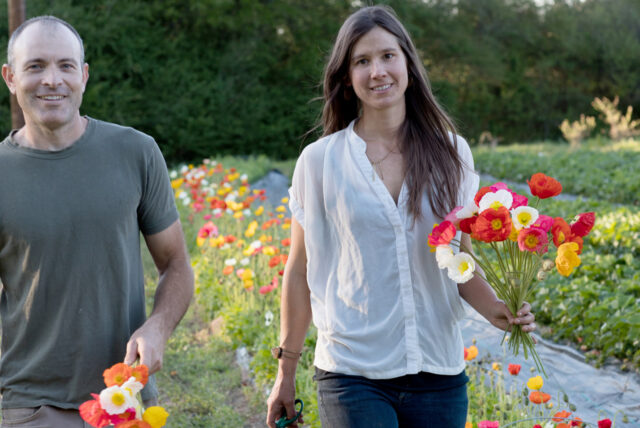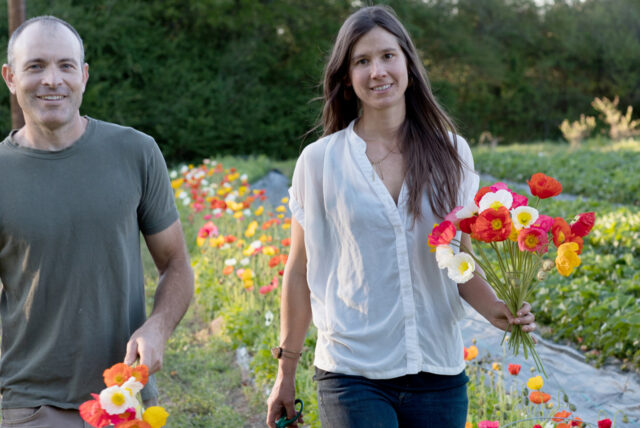
Sowing Seeds of Community: The Rise of Seed Libraries in the Pacific Northwest
Have you ever bitten into a tomato so flavorful, so perfectly balanced in sweetness and acidity, that it tasted like sunshine and summer itself? That’s how old Mrs. Gable’s “Oxheart Sunset” tomatoes tasted, grown from seeds passed down through generations. A few years back, that treasured variety almost vanished when Mrs. Gable could no longer tend her garden. Thankfully, a local seed library stepped in, rescuing the last handful of those precious seeds. Today, thanks to community members and the magic of seed saving, the "Oxheart Sunset" thrives again, gracing gardens across the Pacific Northwest.
This story isn't unique. It highlights the growing importance of seed libraries, especially in our region. They play a vital role in bolstering local food security and safeguarding the incredible diversity of heirloom seeds. As more and more people embrace homesteading and sustainable living, the need for accessible, regionally adapted seeds becomes ever more crucial. Let's dig into the world of seed libraries and learn how you can get involved!

What Exactly IS a Seed Library?
Simply put, a seed library is like a regular library, but instead of books, it lends seeds! These seeds are typically offered for free or for a nominal donation. The basic concept is this: gardeners "borrow" seeds, grow plants, and then, ideally, save seeds from those plants to return to the library, completing the cycle. It's a community-driven system built on sharing and sustainability. These libraries can range in size and scope from a simple box in a community center to a fully-fledged program run by a local organization.
How Do Seed Libraries Operate?
Seed libraries operate on the principles of sharing, education, and community involvement.
- Borrowing Seeds: Gardeners browse the seed collection, select the varieties they want to grow, and “check out” the seeds, recording what they’ve taken.
- Growing and Saving Seeds: This is the fun part! Gardeners plant their borrowed seeds and nurture them to maturity. The goal is to allow at least some of the plants to go to seed, carefully collecting those seeds once they are ripe. Check out this article on seed starting for beginners to learn more!
- Returning Seeds: Saved seeds are cleaned, dried, and properly labeled before being returned to the library. This is crucial for maintaining the quality and viability of the seed collection. Information about the plant's performance, growing conditions, and any unique characteristics are also extremely helpful.
- Education and Workshops: Many seed libraries offer workshops on seed saving techniques, gardening practices, and the importance of biodiversity. These educational programs are a valuable resource for both beginner and experienced gardeners.
- Community Building: Seed libraries serve as gathering places for gardeners to connect, share knowledge, and build community around a shared passion for growing food.
Why Are Seed Libraries So Important?
Seed libraries are far more than just a convenient way to get seeds. They play a vital role in preserving biodiversity, fostering local food security, and promoting sustainable gardening practices.
- Preserving Heirloom Varieties: Heirloom seeds are open-pollinated varieties that have been passed down through generations. They often possess unique flavors, colors, and characteristics that are not found in commercially available seeds. Seed libraries help to preserve these valuable genetic resources, ensuring that they are not lost to time.
- Promoting Local Food Security: By providing access to locally adapted seeds, seed libraries empower communities to grow their own food. This reduces reliance on industrial agriculture and strengthens local food systems, making communities more resilient in the face of economic and environmental challenges. Focusing on the Pacific Northwest Food Systems can make your garden more resilient to local growing challenges.
- Conserving Biodiversity: Modern agriculture relies on a relatively small number of crop varieties, which makes our food supply vulnerable to pests, diseases, and climate change. Seed libraries help to conserve a wider range of genetic diversity, which is essential for adapting to these challenges.
- Combating Climate Change: Locally adapted seeds are better equipped to withstand the effects of climate change, such as drought, extreme temperatures, and new pests and diseases. By growing these seeds, we can build more resilient food systems that are better able to adapt to a changing climate.
- Empowering Gardeners: Seed libraries empower gardeners to take control of their food supply and become active participants in preserving biodiversity. This fosters a sense of community and connection to the land.
Seed Libraries in the Pacific Northwest: A Flourishing Trend
The Pacific Northwest is a hotbed for sustainable living and gardening, so it's no surprise that seed libraries are flourishing here. From urban centers like Seattle and Portland to rural communities in Oregon and Idaho, you'll find seed libraries popping up in community centers, libraries, schools, and even private homes.
These Pacific Northwest Seed Libraries are helping to create more resilient and sustainable communities by providing access to locally adapted seeds and promoting seed saving practices. Many of these libraries focus on varieties that thrive in the unique climate of the Pacific Northwest, making them an invaluable resource for local gardeners.
You can often find listings of local seed libraries online; search for " Seed Library Near Me" to get started. You might also find leads via regional gardening groups.
Getting Involved: How You Can Support Seed Libraries
There are many ways you can support seed libraries and contribute to the movement of seed saving and local food security:
- Borrow Seeds: Start by exploring your local seed library and borrowing seeds to grow in your garden.
- Donate Seeds: If you're an experienced gardener, consider donating seeds from your own plants to the library. Be sure to properly clean, dry, and label the seeds before donating. Check out resources on Saving Seeds for Beginners.
- Volunteer Your Time: Seed libraries often rely on volunteers to help with tasks such as seed sorting, labeling, and organizing workshops.
- Spread the Word: Tell your friends, family, and neighbors about the benefits of seed libraries and encourage them to get involved.
- Start Your Own Seed Library: If there isn't a seed library in your community, consider starting your own! It can be as simple as a small box of seeds in a public place.
A Call to Action: Plant the Seeds of Change
Seed libraries are a powerful tool for building resilient communities and preserving our agricultural heritage. By getting involved, you can contribute to a larger movement of food sovereignty and sustainability. Whether you’re a seasoned gardener or a complete beginner, there’s a place for you in the seed library movement.
So, take a moment to find a seed library near you and explore the wealth of knowledge and resources it has to offer. Even small actions, like saving seeds from your favorite tomato plant, can make a big difference. Let's work together to sow the seeds of a more sustainable and equitable future!
Now, we'd love to hear from you! Share your experiences with using seed libraries in the comments below. Do you have a favorite local seed library? What varieties have you borrowed or donated? Let's create a conversation and connect with fellow seed savers in the Pacific Northwest!